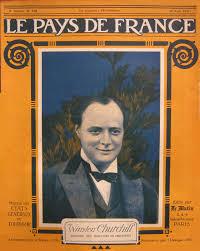Unpacking the Legacy of Winston Churchill

The Importance of Winston Churchill
Winston Churchill remains one of the most significant figures in British history, known for his leadership during World War II and his profound impact on global politics. His oratory skills, writings, and resilience during times of crisis have made him an enduring symbol of courage and determination.
Churchill’s Early Life and Political Career
Born on November 30, 1874, Churchill was educated at the Royal Military Academy Sandhurst before embarking on a career in the military and journalism. His political career began in 1900 when he was elected as a Member of Parliament. Over the years, he held various positions, including First Lord of the Admiralty and Chancellor of the Exchequer.
Leadership During World War II
Churchill rose to prominence when he became Prime Minister in May 1940. At a time when Britain faced the threat of defeat, his leadership was crucial. His speeches inspired hope and resilience among the British people. Phrases like “We shall fight on the beaches” and “Their finest hour” rallied the nation during its darkest days.
Churchill’s collaboration with other Allied leaders, including Franklin D. Roosevelt and Joseph Stalin, was pivotal in securing victory against the Axis powers. His ability to unite various factions for a common goal showcased his exceptional leadership qualities.
Post-War Influence and Legacy
After the war, Churchill continued to be a key political figure, advocating for peace and cooperation among nations. He famously coined the term “Iron Curtain” to describe the division of Europe, signalling the start of the Cold War era. His foresight regarding the ideological struggle between the East and West proved prescient.
In recognition of his contributions, Churchill was awarded the Nobel Prize in Literature in 1953. His writings, including his multi-volume history of World War II and his memoirs, continue to be studied for their insights into leadership and history.
Conclusion
Winston Churchill’s legacy is not just that of a wartime leader but also of a figure who embodied the spirit of resilience and diplomacy. His influence remains relevant today, as leaders across the globe look to his principles in tackling modern challenges. Understanding Churchill’s impact is essential for comprehending both British history and the broader context of world affairs.
